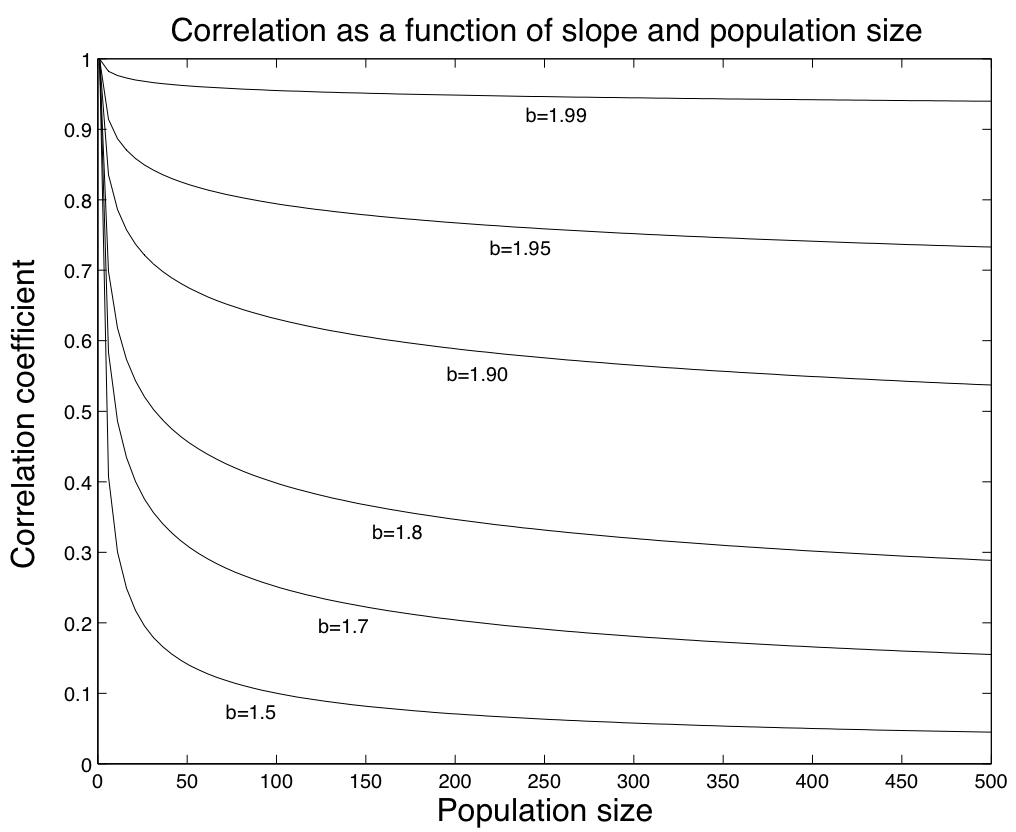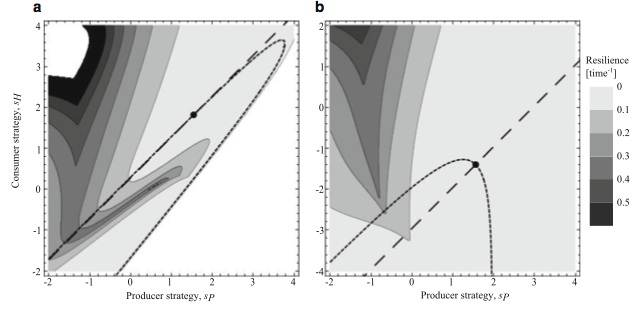|
Mean-variance
scaling of
population abundance
|
Ecology
is
concerned with explaining patterns of animal and plant abundance. The combined
influence of environmental determinants and species specific life
history characteristics
determine how populations fluctuate across space and through time.
Changes in population
size are easy to observe, but quantifying the relationship between
population size
and
individual behavior is a challenge.
Taylor's power law describes how variance in abundance scales with mean
abundance and can be used to make  inference
about interactions among individuals. We are extending theory developed
in the lab that links the exponent of Taylor's Power law to the degree
of reproductive correlation exhibited in a population, and applying it
to address questions about life history trade-offs faced by fish and
plants. We are collaborating with Jorge
Soberon at The University
of Kansas and Chih-hao
Hsieh at National Taiwan
University on multiple projects. inference
about interactions among individuals. We are extending theory developed
in the lab that links the exponent of Taylor's Power law to the degree
of reproductive correlation exhibited in a population, and applying it
to address questions about life history trade-offs faced by fish and
plants. We are collaborating with Jorge
Soberon at The University
of Kansas and Chih-hao
Hsieh at National Taiwan
University on multiple projects.
|
|
| Trait evolution in
the context of interactions |
We are
interested in studying how ecological and evolutionary dynamics
feedback on one another to influence long term population growth,
phenotypes and the stability of ecosystems. Most of the work in this
realm has been theoretical, but we are beginning to perform experiments
with multi-trophic plankton system with the hope of using experimental
data to learn about the trade-offs underlying eco-evolutionary dynamics.
|
|
|

